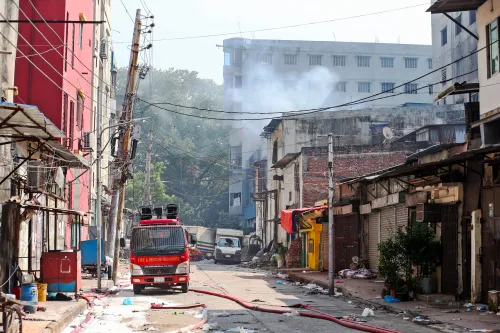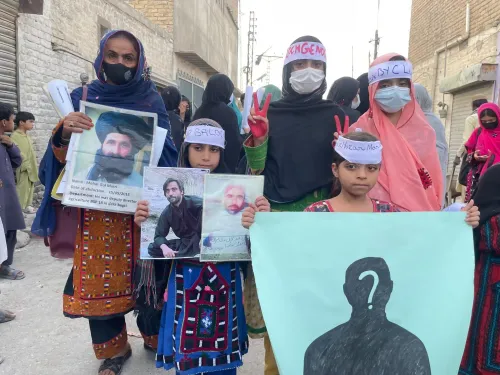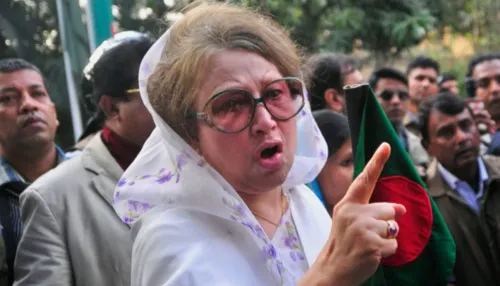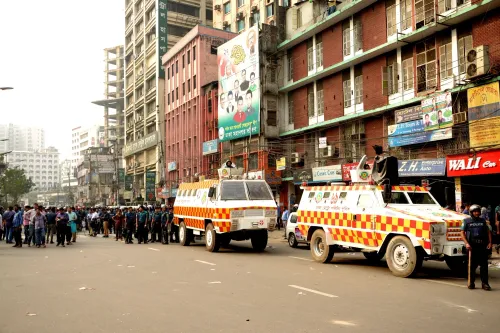How Many Lives Has Dengue Taken in Bangladesh?
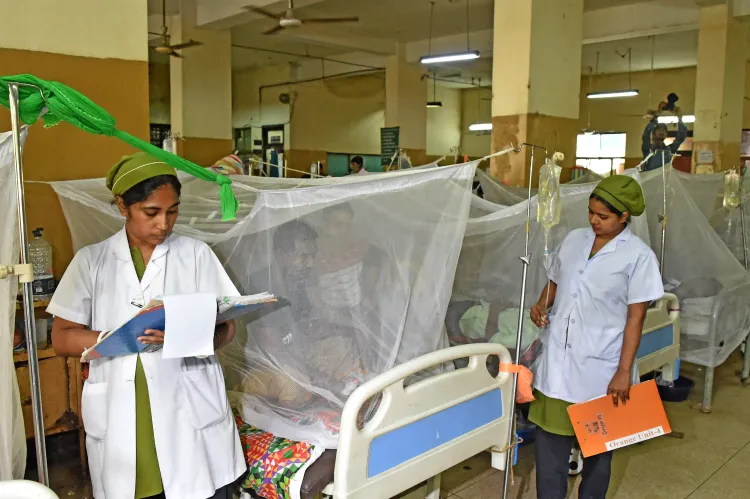
Synopsis
Key Takeaways
- Recent fatalities due to dengue in Bangladesh have risen to 259 in 2025.
- 803 new cases were reported in the last 24 hours.
- Timely medical intervention is crucial for reducing the mortality rate.
- Public awareness and preventive measures are essential in combatting dengue.
- Proper vector control can significantly lower the risk of dengue outbreaks.
Dhaka, Oct 23 (NationPress) In the last 24 hours until 8 am Dhaka time on Thursday, four individuals tragically lost their lives to dengue in Bangladesh, increasing the country’s total fatalities for 2025 to 259.
During this timeframe, 803 new patients were hospitalized, pushing the cumulative number of cases to 63,170, as reported by The Daily Star. Among these, 41,638 dengue patients have been successfully discharged from medical facilities.
The Directorate General of Health Services (DGHS) indicated that two of the recent fatalities occurred in Dhaka City, while one each was reported in the Sylhet and Mymensingh regions.
Currently, 2,648 dengue patients are under treatment across various hospitals in Bangladesh.
On October 9, DGHS Director General Abu Jafor pointed out that the 2025 dengue case count is surpassing that of the previous year; however, the mortality rate is comparatively lower.
In a press briefing regarding the ‘Typhoid Vaccination Campaign-2025’ at the Health Ministry, Abu Jafor remarked: "This year, the dengue infection rate is higher than last year, but the death rate relative to infections is lower," as reported by United News of Bangladesh (UNB).
He emphasized the importance of controlling mosquito breeding and eliminating their larvae to combat dengue. "Individuals must utilize mosquito nets and adopt protective measures. This is largely an individual responsibility. Neglecting these measures will make it exceedingly challenging to eradicate dengue."
Statistics indicate that over 50 percent of dengue-related deaths in hospitals occur on the very first day of admission. This highlights the need for timely medical intervention. "We are striving to ensure efficient management within hospitals," he added.
Abu Jafor stressed the significance of early diagnosis, asserting that dengue can be effectively treated at home with the right medical attention if caught early. He noted that lack of awareness, negligence, and delays in seeking medical assistance are the primary causes behind the rising dengue mortality rate.
Dengue is a viral illness caused by the dengue virus (DENV), which is transmitted to humans through the bites of infected mosquitoes. It is prevalent in tropical and subtropical regions globally, particularly in urban and semi-urban locales, as per a statement from the World Health Organization (WHO). Effective prevention and control rely heavily on vector management. Although there is no specific cure for dengue, early detection and access to appropriate medical care can significantly reduce the mortality rates associated with severe dengue.

